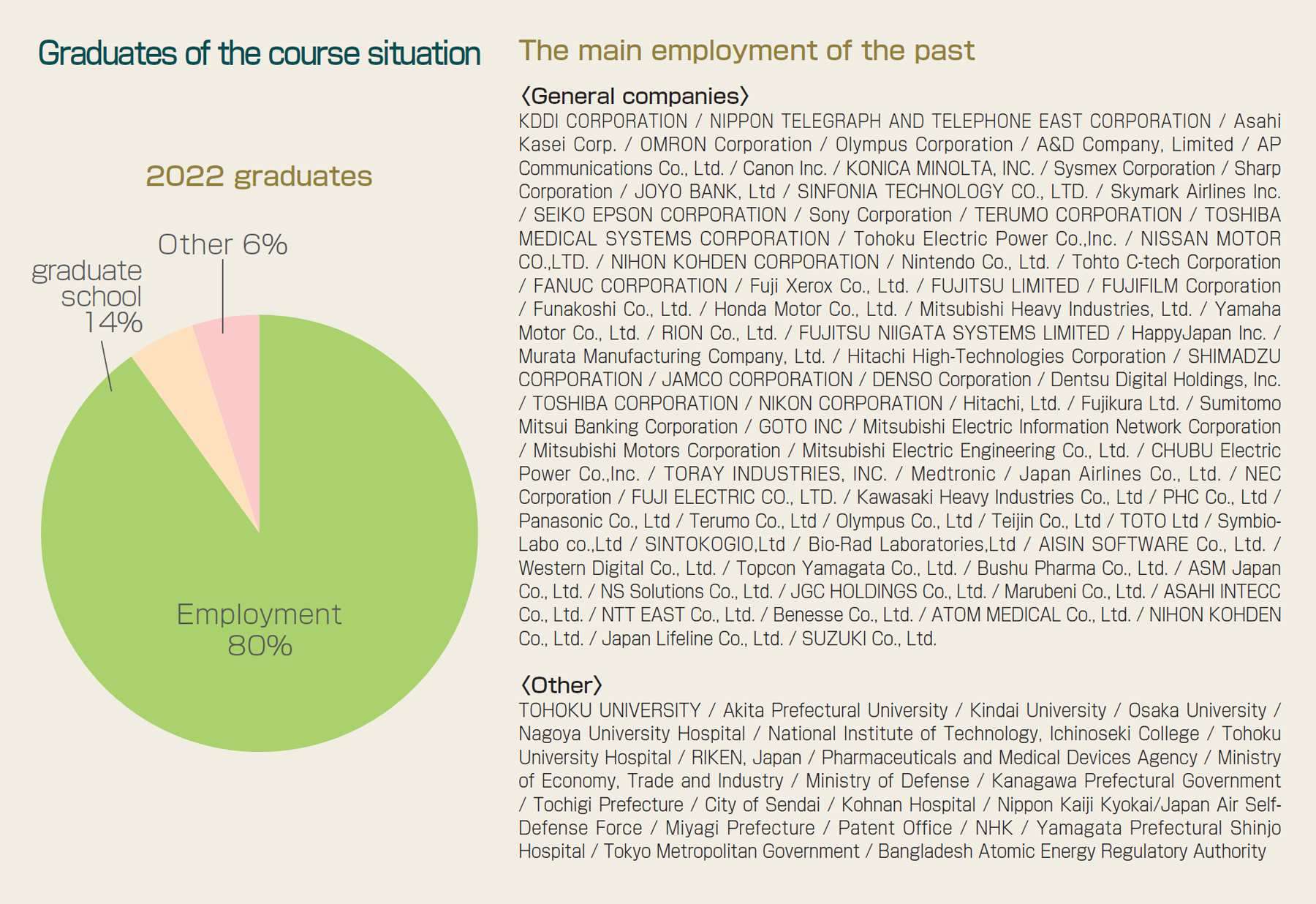The Graduate School of Biomedical Engineering offers a graduate course, which is divided into a two-year course (zennki-katei or Master's course) and a subsequent three-year course (koki-katei or Doctoral Course). Students that complete the courses are granted a master’s degree (shushi-go) and doctor’s degree (hakushi-go), respectively. The career options are varied, from the front lines of medical equipment development to related governmental agencies and education and research institutes. The aim of the Graduate School of Biomedical Engineering is to train and produce human resources such as the following:
Basic researchers with the ability to make new developments in biomedical engineering that can become teaching staff at national and private universities carrying out student education and research and researchers at national research institutes that will promote biomedical engineering research in Japan and train their juniors.
Engineers with wide-ranging knowledge fields such as biomedical engineering, socio-biomedical engineering, medical economics, law and intellectual property that can participate in technical and policy proposals related to health services and biomedical engineering in Japan, planning of national and local medical treatment projects, creation of national and international standards, review and management of medical equipment, etc. as government officials.
Engineers at biomedical corporations that are able to design and develop new medical equipment and have skills related to tissue engineering and regenerative medicine. Engineers who can start medical equipment manufacturing/sales companies and medical equipment ventures, and can contribute to medical and pharmaceutical companies. This includes biomedical engineers required at medical equipment manufacturing and sales companies by the amendment to the Pharmaceutical Affairs Law and engineers at these companies in charge of handling regulations related to biomedical engineering technical patents and clinical studies.
Engineers with the knowledge and skills to modify, maintain and manage diagnostic and treatment equipment at hospitals and exercise their ability to provide guidance to clinical engineers and formulate hospital modernization plans.
